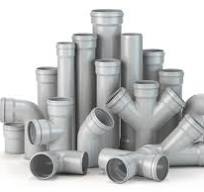Executive Summary
The feasibility study for establishing a PVC pipe production facility in Nigeria reveals a promising business venture, driven by the escalating demand for PVC pipes across various sectors. These pipes are increasingly preferred over traditional materials due to their superior qualities such as durability, ease of installation, and cost-effectiveness.
Market Potential
Nigeria's burgeoning construction, water supply, and irrigation sectors are primary drivers of PVC pipe demand. Rapid urbanization, infrastructure development, and government initiatives aimed at improving water and sanitation systems further amplify market growth. The agricultural sector presents substantial untapped potential for PVC pipe utilization.
Proposed Facility Specifications
The proposed facility will operate at a capacity of 150 kg/hour, producing pipes ranging from 20 mm to 110 mm in diameter. With a 90% capacity utilization rate, operating double 8-hour shifts for 300 days annually, the plant will manufacture a variety of PVC pipes. The primary focus will be on 1-inch diameter pipes, 4 meters in length, with a 3 mm thickness, each weighing 1.5 kg.
Production Inputs and Process
Key raw materials for PVC pipe production, including PVC resin, additives, and pigments, are locally available. The manufacturing process employs modern extrusion technology to compound, melt, and form the PVC mixture into pipes of specified dimensions and colors.
Financial Outlook
The financial analysis indicates that the PVC pipe production facility presents a viable investment opportunity. The project is projected to yield a return on investment exceeding 68% within the first three years of operation. Given effective management and execution, the estimated payback period is under two years.
Conclusion
In summary, the feasibility study underscores the robust market potential and financial viability of a PVC pipe production facility in Nigeria. By capitalizing on growing demand, local raw material availability, and advanced production technologies, this venture has the potential to contribute significantly to Nigeria's economic growth, job creation, and reduction of reliance on imported PVC pipes.
Table of Contents
Executive Summary
1.1 Overview of the Study
1.2 Key Findings
1.3 Recommendations
Introduction
2.1 Background of the PVC Pipe Industry in Nigeria
2.2 Purpose of the Study
2.3 Objectives of the Feasibility Study
Market Analysis
3.1 Overview of the Construction and Infrastructure Sector
3.2 Current Demand for PVC Pipes
3.3 Market Trends and Growth Drivers
3.4 Competitive Landscape
3.5 Opportunities and Challenges
Technical Feasibility
4.1 Description of the PVC Pipe Production Process
4.2 Raw Materials and Supply Chain
4.3 Production Capacity and Plant Design
4.4 Equipment and Technology Requirements
4.5 Quality Control Measures
Economic Feasibility
5.1 Cost Analysis
5.1.1 Capital Expenditure
5.1.2 Operating Costs
5.2 Revenue Projections
5.3 Profitability Analysis
5.4 Break-even Analysis
Regulatory and Environmental Considerations
6.1 Government Policies and Incentives
6.2 Licensing and Certification Requirements
6.3 Environmental Impact Assessment
6.4 Compliance with Safety Standards
Financial Analysis
7.1 Funding Requirements
7.2 Sources of Financing
7.3 Financial Projections
7.3.1 Cash Flow Statement
7.3.2 Income Statement
7.3.3 Balance Sheet
Risk Assessment
8.1 Identification of Potential Risks
8.2 Risk Mitigation Strategies
8.3 Sensitivity Analysis
Implementation Plan
9.1 Timeline for Project Development
9.2 Key Milestones
9.3 Project Management Structure
Conclusion
10.1 Summary of Findings
10.2 Final Recommendations
Appendices
11.1 Supporting Data and Charts
11.2 Detailed Financial Models
11.3 Market Research Data
11.4 Profiles of Key Stakeholders
References
12.1 Cited Works and Resources
N200,000 ( $150)
Get your Indicative loan offer: admin@fundxperts.com
Contact: admin@fundxperts.com

